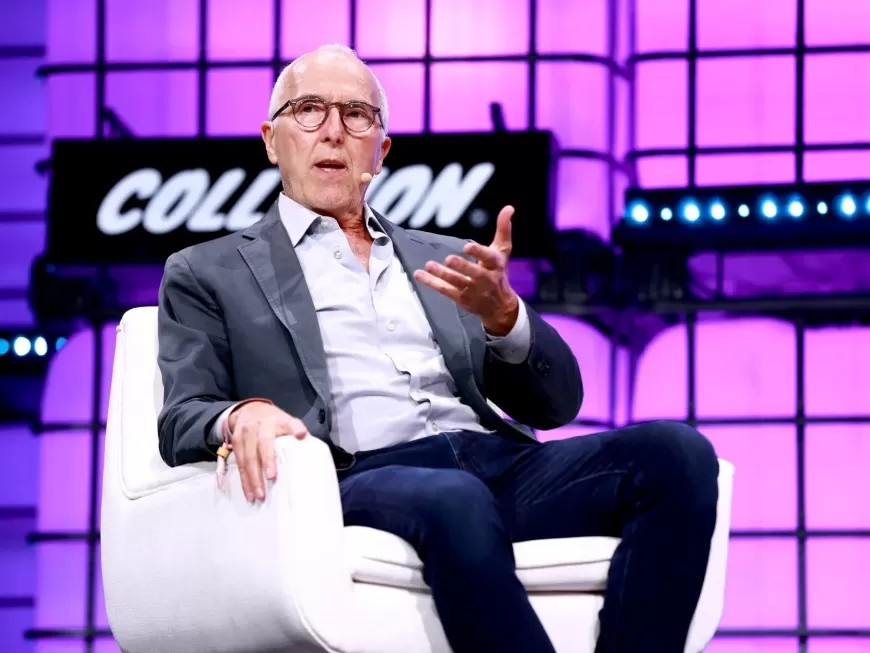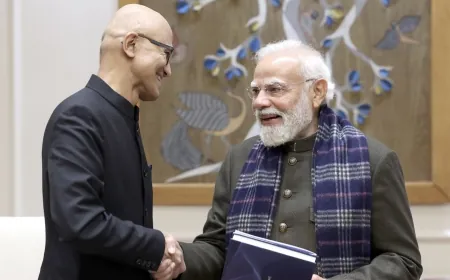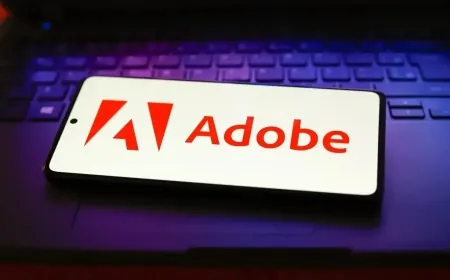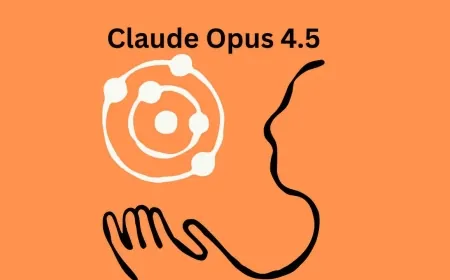Billionaire Frank McCourt’s Plan to Save TikTok from U.S. Ban and Reshape Social Media
Frank McCourt aims to purchase TikTok and transform it into a decentralized platform, offering users more control over their data and mitigating national security concerns.

TikTok’s future in the United States is facing a critical crossroads. The popular video-sharing app, owned by Chinese company ByteDance, has found itself at odds with U.S. lawmakers who have raised national security concerns due to its ties to China. Under a law signed by President Joe Biden in April 2024, TikTok could be banned unless ByteDance sells the app to an American buyer by January 19, 2024. If the deadline passes without a sale, the app may face a full ban, causing significant disruptions for the millions of American users who rely on it.
TikTok and ByteDance have fought this move in court, but their chances of success appear slim. The U.S. government’s scrutiny centers around the potential for TikTok to harvest and misuse user data, posing a threat to national security. The legal battle is heating up, with TikTok appealing the law to the U.S. Supreme Court, which is set to hear the case on January 10, 2024, just days before the ban could take effect.
Frank McCourt Steps In with a Bold Plan for TikTok’s Survival
While the legal landscape for TikTok looks bleak, billionaire real estate mogul Frank McCourt is proposing an unexpected solution: a deal to purchase TikTok and turn it into a decentralized social media platform. McCourt, a former owner of the Los Angeles Dodgers, has offered a vision that he believes could address both national security concerns and the growing demand for greater user control over personal data.
McCourt’s plan centers around the concept of a "TikTok 2.0," a revamped version of the app that would remove ByteDance’s algorithm and operate on a new, decentralized platform. His initiative, Project Liberty, is aimed at challenging the traditional model of social media, which many argue gives too much control to centralized companies like TikTok.
Instead of relying on TikTok’s proprietary recommendation algorithm, McCourt plans to give users more control over their feeds and data. His vision includes an American-made infrastructure for the app, utilizing new servers that allow for better privacy protections and user autonomy. McCourt sees this as a way to balance the need for a successful social platform with privacy concerns, offering users a way to interact without the fear of excessive data collection and manipulation.
TikTok 2.0: Empowering Users with More Control
One of the most critical aspects of McCourt’s plan is decentralization, which he believes can resolve the primary concerns surrounding TikTok’s algorithm. Central to TikTok's current success is its ability to suggest viral videos based on user behavior. However, critics argue that this highly centralized control limits users' ability to make their own decisions about what content they see.
McCourt envisions a platform where users can have more control over their own content consumption. His version of TikTok would allow users to decide what kind of content they want to see, giving them autonomy over their online experience. In his model, users could also take their followers with them if they decided to switch platforms, offering greater freedom and flexibility. This would address a key issue for influencers, many of whom feel trapped by the current system, where their follower bases are tied to a single app’s algorithm.
“We believe the key to the future of social media lies in user control,” McCourt said. “TikTok 2.0 would empower influencers and creators to own their content and follower relationships, without fear of manipulation or data exploitation.”
Financial Backing and Support for McCourt’s Bid
While McCourt’s vision for TikTok is ambitious, he faces a significant hurdle in securing the funds necessary to complete the acquisition. With an estimated purchase price of $25 billion, McCourt’s current net worth of $2.4 billion is far from sufficient. However, McCourt is undeterred. He has already held meetings with potential investors in both New York and San Francisco, reaching out to financiers who could help fund the deal. He has also garnered support from U.S. investors who are interested in seeing TikTok remain operational in the U.S.
McCourt’s relationship with President-elect Donald Trump could be another key factor in his push to purchase TikTok. McCourt and Trump have known each other through the real estate industry, and Trump has previously expressed interest in avoiding the ban of TikTok. McCourt’s proposal aligns with Trump’s desire to keep the app operational in the U.S. while addressing the national security concerns that have dominated the debate.
“We’re not interested in selling the algorithm; we want to preserve the app and its user base while ensuring it remains safe and secure,” McCourt said, emphasizing that his plan could help keep TikTok alive without compromising U.S. interests.
Challenges to McCourt’s Plan: Legal Hurdles and Competition
While McCourt’s idea has garnered interest from American lawmakers and influencers, it still faces significant challenges. McCourt has not yet been able to initiate direct talks with ByteDance, and he is also missing critical support from major American investors, including Jeff Yass, who owns a substantial stake in ByteDance.
Moreover, McCourt’s bid could face fierce competition from other potential buyers, including major tech companies such as Amazon, Microsoft, and Oracle. Each of these companies has expressed interest in acquiring TikTok in the past, and they may revisit their bids if ByteDance is forced to sell.
“Even if McCourt is successful in securing the necessary backing, he will still face stiff competition from companies with much deeper pockets and larger stakes in the U.S. market,” said tech industry analyst Andrew Morgan.
McCourt’s Growing Support in Washington
Despite the challenges, McCourt’s proposal is resonating with many U.S. lawmakers. He has already met with members of Congress from both political parties, including those on the Select Committee on the Chinese Communist Party. McCourt’s pitch emphasizes the need for a U.S.-based social media platform that can stand up to Chinese influence, while also empowering users with control over their data.
His plan has also sparked enthusiasm among TikTok influencers, who see it as an opportunity to break free from the constraints of the current system. In a recent dinner hosted in Malibu, McCourt pitched his vision for TikTok 2.0 to 20 top influencers with a combined following of over 100 million users.
“The promise of greater control over their content and followers has been a huge selling point for influencers,” McCourt said.
What’s Next for TikTok and Its Users?
As the deadline to sell or face a ban approaches, TikTok’s future is still in flux. ByteDance’s resistance to selling the app remains firm, but as legal options dwindle, McCourt’s proposal may become one of the few remaining solutions. If McCourt’s bid is successful, it could transform the social media landscape, offering a new kind of platform that prioritizes user autonomy and privacy.
However, even with growing support, McCourt faces significant competition and may encounter resistance from ByteDance executives. As the situation unfolds, McCourt’s plan to reshape TikTok could offer a new path forward in the ongoing debate over privacy, data control, and the future of social media in America.
A New Future for TikTok?
TikTok’s future in the U.S. is at a crossroads, but Frank McCourt’s proposal offers a potential solution that could preserve the app while addressing national security concerns and giving users more control over their experience. Whether or not McCourt can secure the necessary backing and overcome the competition remains to be seen, but his push for a decentralized, user-controlled platform could shape the future of social media for years to come.
Also Read: TikTok Ban Threat: Creators Urge Followers to Connect on Instagram and YouTube































































